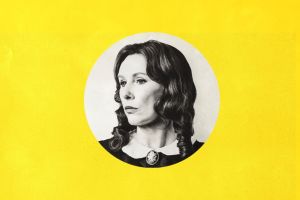John Morrison On … Bringing Guy Burgess to the Stage
John Morrison is a political journalist who first visited Moscow in 1965 and worked there as a Reuters correspondent in the 1970s and 80s. His new play A Morning with Guy Burgess gives a fresh twist to the story of the most flamboyant of the Cambridge spies, and is produced in his centenary year at the Courtyard Theatre from 13 to 30 January (previews from 11 January 2011).
The Cambridge spy ring of Philby, Burgess, Maclean and Blunt who fascinated the public of the time, inspiring plays, films and books about why they betrayed their country. Here Morrison tells us about blending fact and fiction to create A Morning with Guy Burgess.
“Never make up a quote,” one of my bosses at Reuters told me when I was a wet-behind-the-ears young journalist. I still feel a twinge of guilty pleasure in putting words into the mouths of real people. Sticking to the historical facts won’t get you far as a playwright; at the best it will lead to a turgid drama-documentary. And yet, as I found in writing a play about Soviet spy Guy Burgess, the best stories are often true, like the one that filtered out of the KGB archives at the end of the cold war about Burgess and his close friend Goronwy Rees. Panicking about the risk of being betrayed to MI5, Burgess offered to murder Rees, but his Moscow controllers vetoed the idea.
Burgess, the most theatrical of the Cambridge spies, died in Moscow in 1963 aged 52 after a lifetime of drinking and smoking. A Morning with Guy Burgess imagines him shortly before his final admission to the Botkin hospital, looking back on his life.
The Cambridge spies and their tortured relationship with Britain have already provided rich material for dramatists. Alan Bennett’s television play about Burgess An Englishman Abroad and his stage plays A Question of Attribution and The Old Country are wonderful (does anyone have a bust of Bennett I can put in the foyer?) but I always feel that like a torn postcard, they only tell half the story. “Most people who come here adore the Russians but don’t like the system. I’m the other way round. I think the system is wonderful but the Russians drive me up the bloody wall,” Burgess says. We all know that Burgess betrayed the British – though he always denied it – but, by choosing to work for Stalin, did he also betray the Russians?
The missing half of the postcard is the Russian part; was Burgess too drunk to be any use as a spy? The man who gave me the answer to that question, veteran KGB spy Yuri Modin, died only recently in Moscow. Back in 1994 he described Burgess to me as a real professional. “He did everything he promised and did it perfectly, because he wanted to show me — this is how to do intelligence work!”
Burgess was more of a talker than a writer, never happier than when exchanging gossip and scandal about the famous. A Foreign Office colleague recalled: “The more luxurious the surroundings and the more distinguished the company, the happier he was. I have never heard a name-dropper in the same class.” Struggling to find the right voice for my character, I found inspiration in a rare cache of letters from Burgess to his wartime lover, which was generously shown to me by the author Andrew Lownie.
Another creative jolt came in a description of Burgess in Moscow by the journalist Mark Frankland, who said he was reminded of Laurence Olivier playing Archie Rice. I started to see Burgess not just as a spy, but as a music hall artiste with his best days behind him, rousing himself for a final performance. But who was he performing to? Most of my characters are based on real people, but the play only started to work when I invented an entirely fictional character — Julia, who walks unexpectedly into Burgess’s Moscow flat to hear his life story and tell her own.
Luckily I have found in Dimitry Devdariani a director who not only knows the Soviet context himself but has applied his own visual imagination to give both the facts and the fiction a new life of their own on stage.
A Morning with Guy Burgess runs at the Courtyard Theatre from 13 to 30 January with previews from 11 January 2011.












